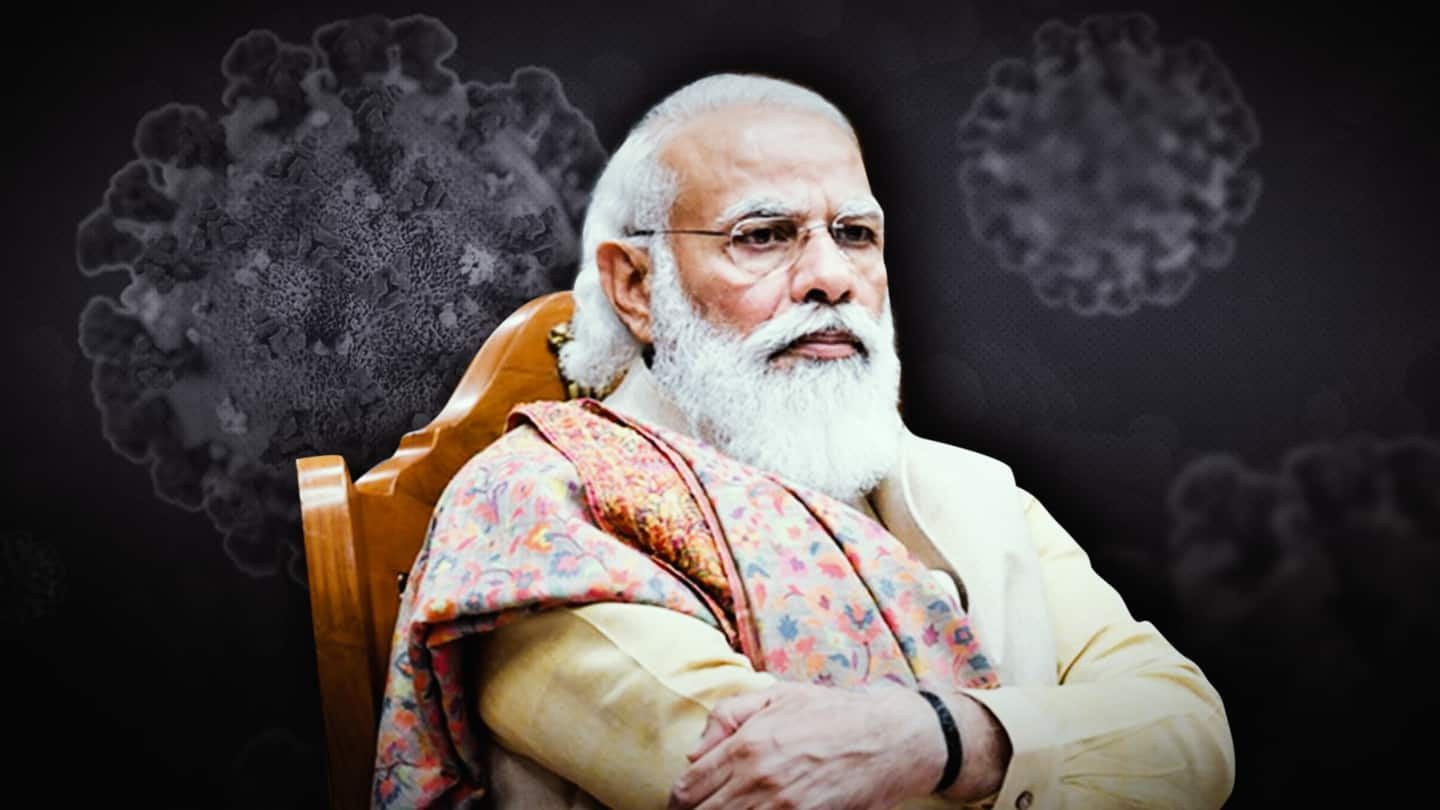
Modi government's actions 'inexcusable': Lancet criticizes India's handling of COVID-19
What's the story
The Indian government must pursue a two-pronged strategy to address the COVID-19 pandemic, including the rationalization and speedy implementation of a "botched vaccination campaign," the medical journal The Lancet said Saturday.
In a heavily critical editorial, the journal said Prime Minister Narendra Modi could be responsible for presiding over a "self-inflicted national catastrophe."
The government "squandered" its early successes in controlling COVID-19, it added.
False indication
Health minister prematurely declared India was in 'endgame': Lancet
Before the second wave of the pandemic struck in early March, Union Health Minister Harsh Vardhan declared that India was in the "endgame" of the epidemic, The Lancet noted.
It said the government gave an impression that India had beaten COVID-19, despite warnings of new strains emerging.
A false indication of herd immunity encouraged complacency and insufficient preparation for handling the crisis, it added.
Lack of measures
'Super-spreader' events: Religious festivals, political rallies allowed to be held
The journal criticized the government's move to permit the organization of religious festivals and political rallies involving "millions of people," despite the risk of "super-spreader" events.
It highlighted that such gatherings are "conspicuous for their lack of COVID-19 mitigation measures."
The government's primary message that COVID-19 was essentially over slowed down the vaccination program, with less than 2% of the population inoculated, it claimed.
Vaccination
COVID-19 vaccines should also reach rural, poorer citizens, says Lancet
Pushing for the acceleration of India's vaccination program, the journal said COVID-19 vaccines should also be supplied from abroad.
Further, a campaign should ensure that the vaccines reach rural and poorer citizens, who constitute more than 65% of the population but are often deprived of public health facilities.
The government must work with local and primary healthcare centers to "create an equitable distribution system."
Curbing transmission
'Modi's attempts to stifle discussion inexcusable; must expand genome sequencing'
The Prime Minister's attempts to "stifle criticism and open discussion" during the pandemic are "inexcusable," the editorial stated.
In a bid to reduce COVID-19 transmission, the government must publish timely and accurate data that may explain to the public what is needed to bend the epidemic curve, it said.
Genome sequencing must also be expanded to track and control more transmissible variants, it added.
Social media
Government seemed more concerned about removing criticism from Twitter: Lancet
The journal came down heavily on the incumbent government's actions and alleged misplaced priorities on its part.
"At times, Prime Minister Narendra Modi's Government has seemed more intent on removing criticism on Twitter than trying to control the pandemic," the journal noted.
Two weeks ago, Twitter withheld 50 tweets criticizing the mismanagement, while Facebook claimed it mistakenly blocked posts bearing the hashtag #ResignModi.
Grievances
Don't clampdown on SOS calls: Top court had warned police
On April 30, the Supreme Court warned police officers of contempt action for clamping down on citizens posting COVID-related SOS calls on social media.
"If citizens communicate their grievances on... the internet, then it cannot be said that it's wrong information," it said.
The Uttar Pradesh government had earlier said it would take action under the National Security Act against those raising false alarms.
Beating COVID-19
Success depends on government owning up to its mistakes: Lancet
Citing data from the Institute for Health Metrics and Evaluation, the journal said that India will see an estimated one million COVID-linked deaths by August 1.
The success of containing and overcoming the pandemic will depend on the government owning up to its mistakes, providing responsible leadership and transparency, and devising a scientific public health response, the editorial concluded.